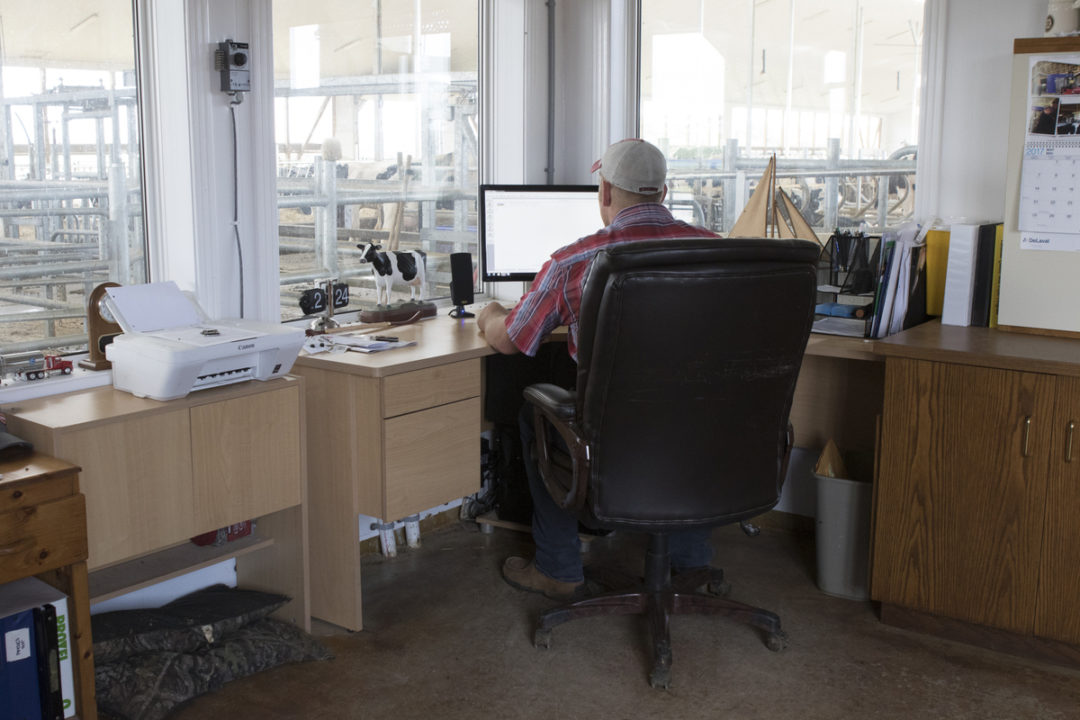After swallowing this pill, Paul had to shift his perspective and focus on what he could control. I asked Paul, “What time are you getting your butt out of bed and getting to work?” Paul had been leaving the house just as the kids were waking up (~7:15 a.m.) and was getting home after they went to sleep. Our first conversation focused on him getting to the barn at 4 a.m. and putting in a solid 12-hour day, so Paul had no guilt (or flak from his partners) about his contributions to the farm. That would allow him to be home to greet his kids as they came off the school bus. The next conversation was about him unplugging his big screen TV and leaving his cellphone plugged in by his work boots in the garage (eliminate social media at home). The time that he was home, he needed to “be present.” I got him obsessed with the root problems (no family time due to poor time management) and controlling what he could control (his workday start time).
Paul was not a morning person. He did not want to get out of bed three hours earlier, but he recognized it was necessary for change and asked me to hold him accountable. He texted me photos of himself in the barn daily by 4:04 a.m. for the first month to be held accountable, and I didn’t allow him any excuses. At first, he got out of bed for himself, hitting the snooze often. When he started thinking about his son with the knife to his throat and started thinking about the needs of his family, he got his butt to the barn. The shift in mindset of “doing what I want” to “doing what is best for the family” was life-changing.
This new mind shift has impacted not only his personal life, but it is now helping the farm from the inside out. One employee who had given a month’s notice to quit turned down their new job at the end of the month because “something changed on the farm, and I like it.” Paul is starting to think about “what others need” not just “what I need.” Instead of only talking to his dad, brother and staff when he needed something, Paul is asking how their day is going and asking, “How can I help you?” As Sam said, he “stopped being a slave driver and started treating everyone like they are human.” He is thinking about the business’s needs from the perspective of others. In just a month, he has radically changed both employee training and what he is like to work with (not a jerk) as a partner.
Behind the scenes, I spoke to Paul’s family to recognize that the way they had reacted was contrary to their core values and helped them see there was a problem with their culture. Over time, Grandpa’s and Sam’s attitudes changed after they saw Paul getting out of bed early every morning. They agreed to paying their best employees more and raised the starting wage for new employees. They agreed to contract in a third-party manure hauling service for this year until they “got a better handle of the labor situation.” For them to make these changes was a big win.
The biggest change for the farm was the family agreed to meet every Monday at noon, come wind, rain or fire. They started problem-solving together proactively instead of fighting fires and arguing after the proverbial house was already burnt down. Instead of just talking, everyone started listening and seeing the other family members’ viewpoints. Instead of complaining about problems, the family started working through them and operations became less chaotic. Over the last two months, arrogance and lack of respect has diminished.
In today’s labor shortage, it is easy to get wrapped up in a narcissistic viewpoint while trying to overcome an overwhelming workload. It is very easy to get wrapped up in your own needs and lose perspective of the needs of those around you. Your world becomes all about you. This is the breeding ground for narcissistic behavior.
If you’re in a similar predicament, I suggest the following changes that Paul made:
1. Don’t expect your partners to change until you dramatically change. Set the example. Ask yourself what your top 10 problems on your farm are, and then identify five changes you can easily make by doing simple (yet hard) things like getting out of bed earlier. Focus on what you can control.
2. Get your partners to commit to meeting weekly to plan operations and problem-solve together. Evolve how you work together from “fighting fires” to thinking ahead and doing fire prevention. Instead of complaining about problems and blaming, proactively problem-solve together.
3. Start asking yourself hourly what do your employees and partners need. Not just what you need. It might seem silly, but when you take your boots off at night, write down one nice thing you did for each partner or key employee that day which you didn’t have to. Shift from a “me” to a “we” mindset.
Change is possible when you start looking at what you can control and change for yourself.
Andy “Caygeon” Junkin’s niche is helping stubborn farmers work better together. You can download his audiobook Bulletproof Your Farm and/or take his masterclass “Farming with your Stubborn Family” for free at Stubborn.farm










